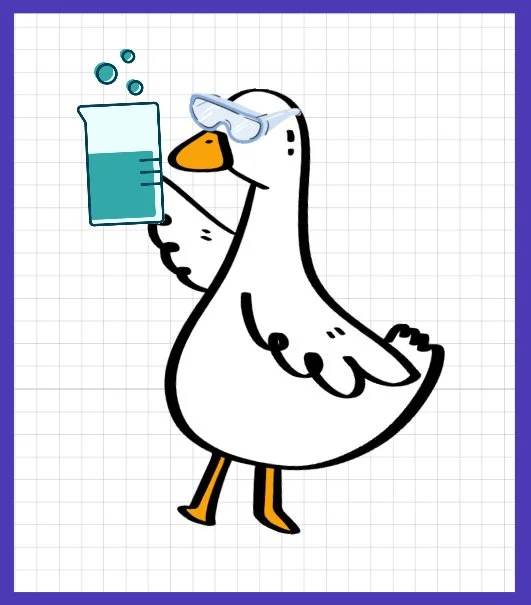By Madeleine Diesl ’28
Science & Environment Editor
Whether you’re a prospective STEM major, interested in the sciences but unsure where to start, or just looking for a fun course to fulfill your distribution requirements, there is an introductory-level STEM class for you! In spring 2026, Mount Holyoke College will be offering 15 different 100-level STEM courses without prerequisites. This means that absolutely anyone — regardless of background — can take these courses, with the exception of a few limited to first years and sophomores.
One unique aspect of some science courses is that they have a lab section. Lab sections at Mount Holyoke College typically run one day of the week from 1:30 to 4:20 p.m and offer students an opportunity to do some hands-on learning and gain low-stakes research experience. Depending on the subject, lab students might get to use specialized equipment, collect data outside in nature, or even go on off-campus field trips.
In a statement to Mount Holyoke News, Assistant Professor of Biological Sciences Chloe Pak Drummond described the benefits of taking a lab course at Mount Holyoke College: “Because labs allow students to engage course material hands-on, they are very helpful for strengthening understanding and gaining an appreciation for the larger context of the course material.” This spring, there are five different introductory level STEM lab courses on offer.
If you’re interested in computers and coding, you should consider either COMSC-151: Introduction to Computational Problem Solving or COMSC-100: Foundations of Computer Science. While both courses provide an overview of the study of computer science, it is important to note that COMSC-151 includes programming, while COMSC-100 does not.
If you’d rather study the human brain, you should take NEURO-100: Introduction to Neuroscience and Behavior. This course, which has elements of psychology, biology, and anatomy, gives students a preliminary understanding of all things neuroscience. NEURO-100 is limited to first years and sophomores.
More into mixing chemicals? You should consider CHEM-150, also known as General Chemistry: Foundations. One benefit to taking CHEM-150 is that it meets the requirements for many other majors, including geology, biology, and neuroscience.
Finally, if you want a lab course that explores the natural world, you should take BIOL-145EX: Introductory Biology: ‘Exploring Biodiversity with Laboratory.’ Like many courses in the biology department, BIOL-145EX lab includes experimental design and scientific writing which gives students many opportunities for independent research.
Drummond, who teaches BIOL-145EX, expanded upon some of the lab activities in her course: “The labs include working with microscopes, conducting experiments around plant pigments and photosynthesis, reconstructing evolutionary history using DNA, and studying the foraging behavior of squirrels.”
In addition, there are plenty of introductory STEM courses for students who don’t have time in their schedule for a three-hour lab.
For the mathematically-minded student, the College will be offering STAT-140: Introduction to the Ideas and Applications of Statistics, MATH-101: Calculus I, and DATA-113: Introduction to Data Science. If you’re also interested in programming, DATA-113 includes writing code in Python.
Math is the basis of many science subjects, so taking a math or statistics class can be beneficial for all potential STEM majors. As Visiting Assistant Professor Ishfaaq Mohammed Imtiyas — who will be teaching one of the sections of STAT-140 — explained in an email to Mount Holyoke News, “The goal of [STAT-140] is to set a good foundation for students with a wide variety of future aspirations. … It’s a fun class.”
The physics department will be offering two interdisciplinary 100-level science courses next semester: PHYS-107: Dancing with Gravity: Physics and Dance, and PHYS-109: Science on Screen. Both of these courses tie together science and the arts in unique ways; PHYS-107 includes in-class dance performance, while PHYS-109 features a weekly film screening. Either of these classes could be a good fit for students interested in the intersection between STEM and humanities.
If you want to learn more about our planet — or others — you should consider a course in the geology or astronomy departments. The Department of Geology will be offering two courses under the GEOL-104: Introduction to Geology and Physical Geography title. There’s GEOL-104DN: Dinosaurs, and GEOL-104EG: Environmental Geology.
Visiting Assistant Professor Kinuyo Kanamaru, who will be teaching environmental geology in the spring, described her upcoming course to Mount Holyoke News: “How is it possible to navigate with a compass when the magnetic North Pole moves away from true north at a speed of 60 kilometers per year? [GEOL-104] is the discovery of answers to abstract questions such as this!”
The astronomy department leads in number of introductory-level classes, with three courses being offered this spring without prerequisites: ASTR-100: Stars and Galaxies, ASTR-104: Planet Earth, and ASTR-105: The Sky. ASTR-105 meets in the evening, and students who take it learn to use the telescopes at the Williston Observatory.
Further information about all of these courses and more can be found in the Mount Holyoke College course catalog.
Sam McKay ’29 contributed fact-checking.








